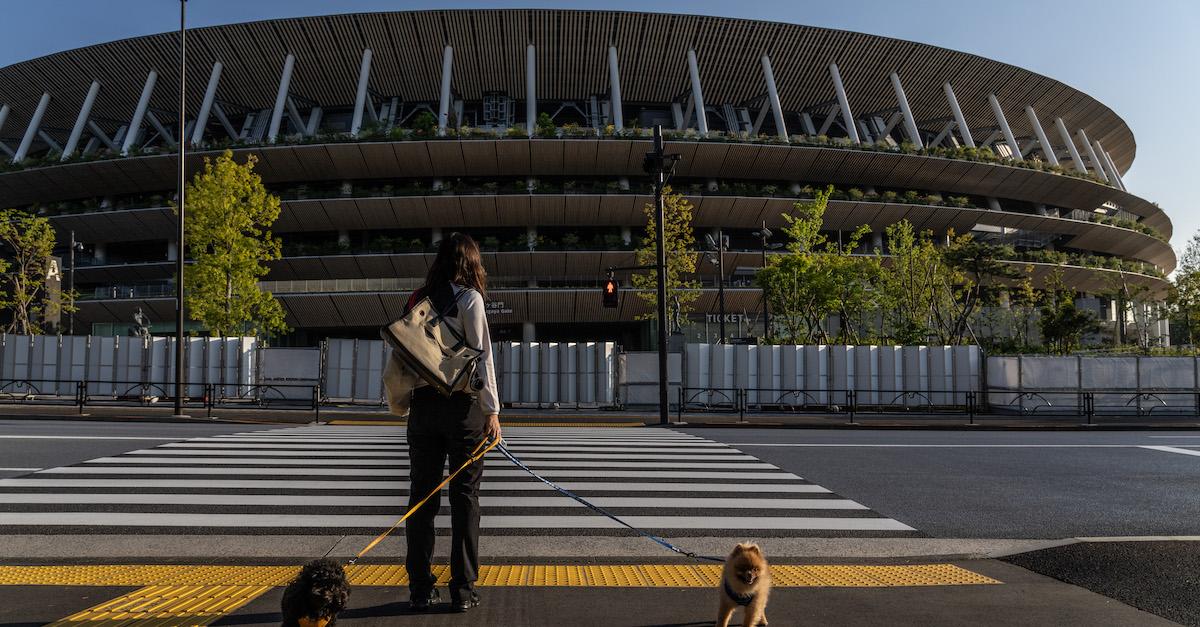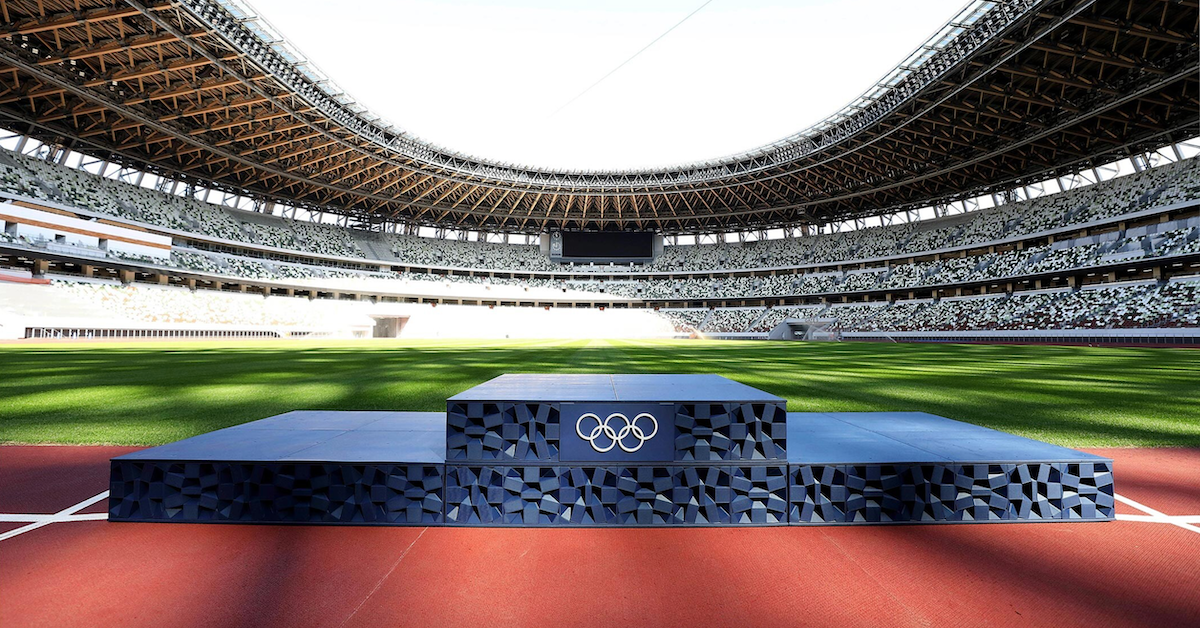Sustainability at the Tokyo Olympics: A Look Into the Recycled Medals, Podiums, and Eco Initiatives
Published July 7 2021, 1:07 p.m. ET

For the Tokyo 2020 Olympics (which are happening in the summer of 2021 due to the coronavirus pandemic), eight new venues were built, and more than 11,000 athletes (plus numerous spectators) will fly to Japan for the games.
All that doesn’t really make for a sustainable Olympics — but the Olympics committee actually does have a few initiatives to reduce the environmental impact of the massive sporting event, some of which have been in the works for years.
The 2020 Tokyo Olympics has a sustainability concept and themes.

Kicking off on Friday, July 23, 2021, the Tokyo 2020 Games have considered sustainability from the beginning. “From the outset, Tokyo 2020 has been dedicated to leveraging the opportunities provided by hosting the Olympic and Paralympic Games to help build a more sustainable society,” said Yuki Arata, the senior director of sustainability for the Olympics’ organizing committee, as per E&T.
Additionally, several weeks before the Games kick off, the Olympic organizers have already purchased 150 percent of the carbon credits needed to offset the Games’ greenhouse gas emissions, meaning the Olympics will actually be “carbon negative,” as reported by NPR. Of course, it’s better to not produce emissions in the first place than to offset them — and the Olympics could certainly save resources in the future by using existing infrastructure rather than building so much new space for events and housing.
The Tokyo 2020 Games also have a sustainability concept: "Be better, together — For the planet and the people.”
“We will take the initiative to meet its responsibility to deliver sustainable Games and showcase solution models of global sustainability challenges to people in Japan and around the world,” reads a statement on the sustainability page of the official Tokyo 2020 website.
The committee’s primary sustainability goal is to adhere to the UN’s 17 Sustainable Development Goals, which include: no poverty, affordable and clean energy, climate action, gender equality, and responsible consumption and production.
The Olympics have also set five sustainability themes for this year’s Games:
Climate change: The Games plan to use renewable energy as much as possible and work towards zero carbon emissions
Resource management: The 2020 Olympics have a goal of producing zero waste.
Natural environment and biodiversity: The Games will contribute to Tokyo’s idea of “city within nature/nature within the city.”
Human rights, labor, and fair business practices: The Olympics committee plans to follow the UN’s Guiding Principles on Business and Human Rights.
Involvement, cooperation, and communications: The committee wants the Games to be “open to everyone.”
Additionally, the Olympics have developed a Sustainable Sourcing Code, which sets standards for various products and services used in the Games, including merchandise, timber, agricultural products, paper, livestock, fish, and palm oil.
The Olympic podiums are made from recycled plastic.
For this year’s Olympic and Paralympic Games, there will be a 3D-printed podium made of recycled, donated plastic waste, designed by Asao Tokoro. “The underlying philosophy was to create something we would want to keep instead of throwing away as rubbish,” Tokoro said about the podium, in an interview on the official Olympic website.
Ironically, the podium produced as part of an initiate with Procter & Gamble (P&G), the No. 7 plastic polluter of 2020.
The Olympic medals are made from recycled metals.
For this year’s Olympic and Paralympic Games, about 5,000 medals have been made from recycled small electronic devices that people across Japan donated for the project. The Olympics state that this year’s Olympics are the first to use recycled medals, and the first Olympics to get locals involved in the process.
Additionally, the trays used to hold the medals (pictured above) are made from recyclable thermoplastic polymer.
The Olympics are far from being a good thing for the environment, but it's nice to see that at least some efforts are being made.
